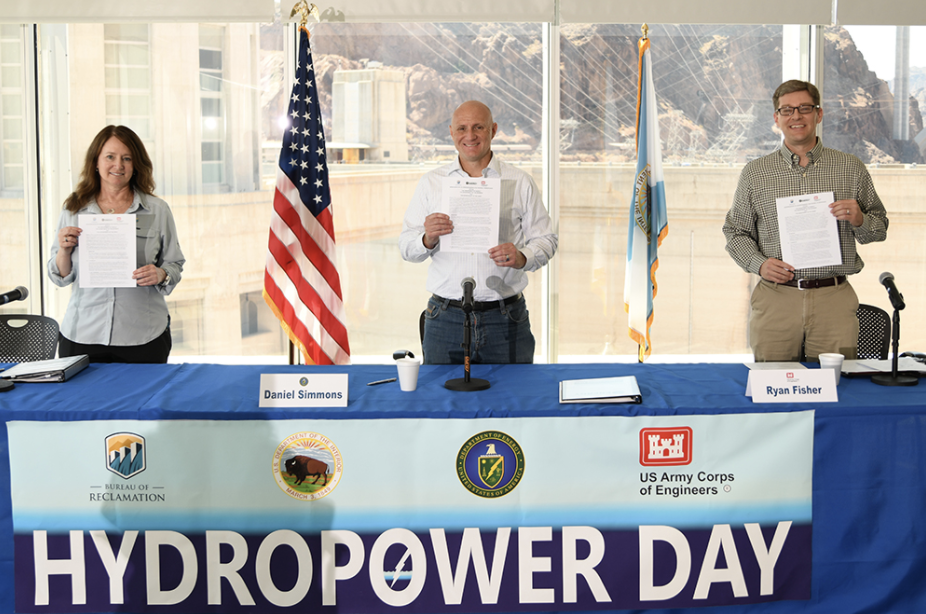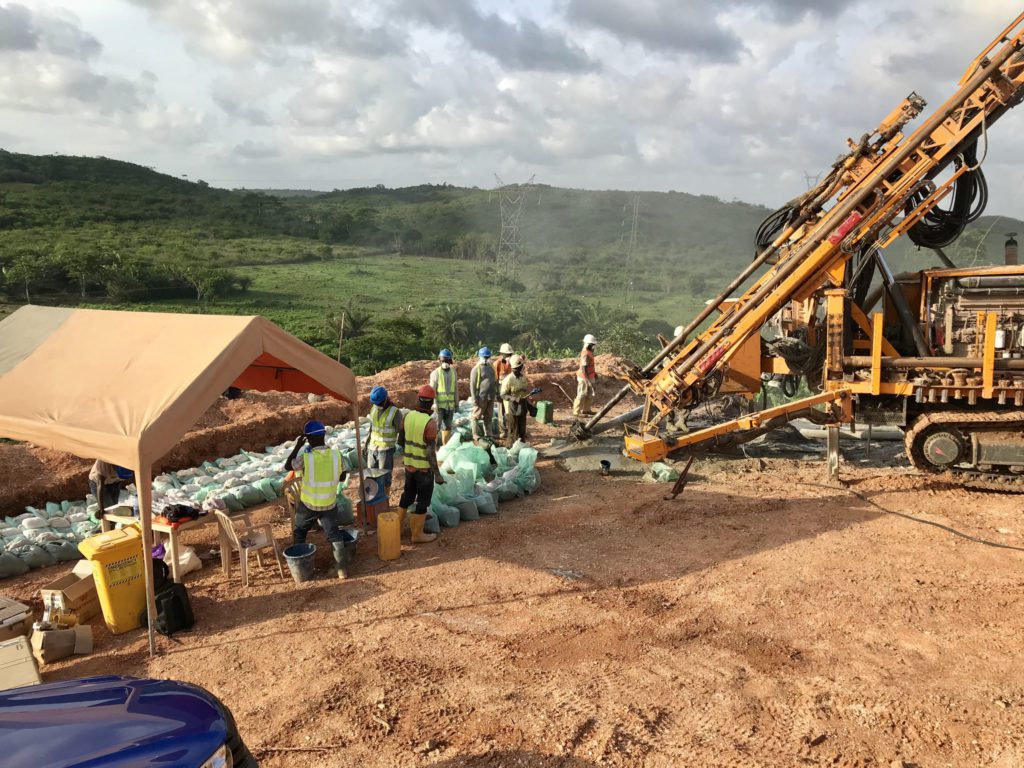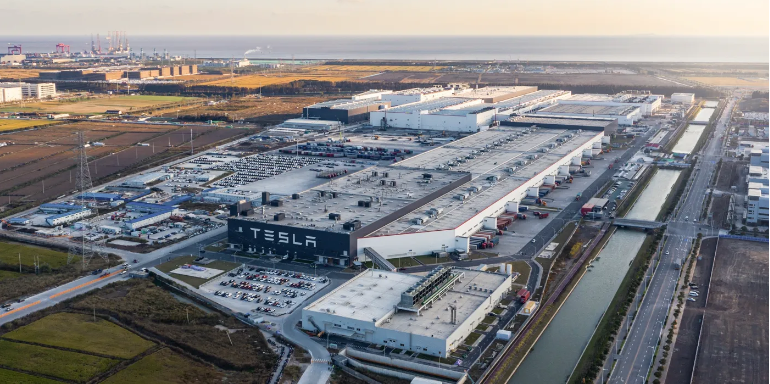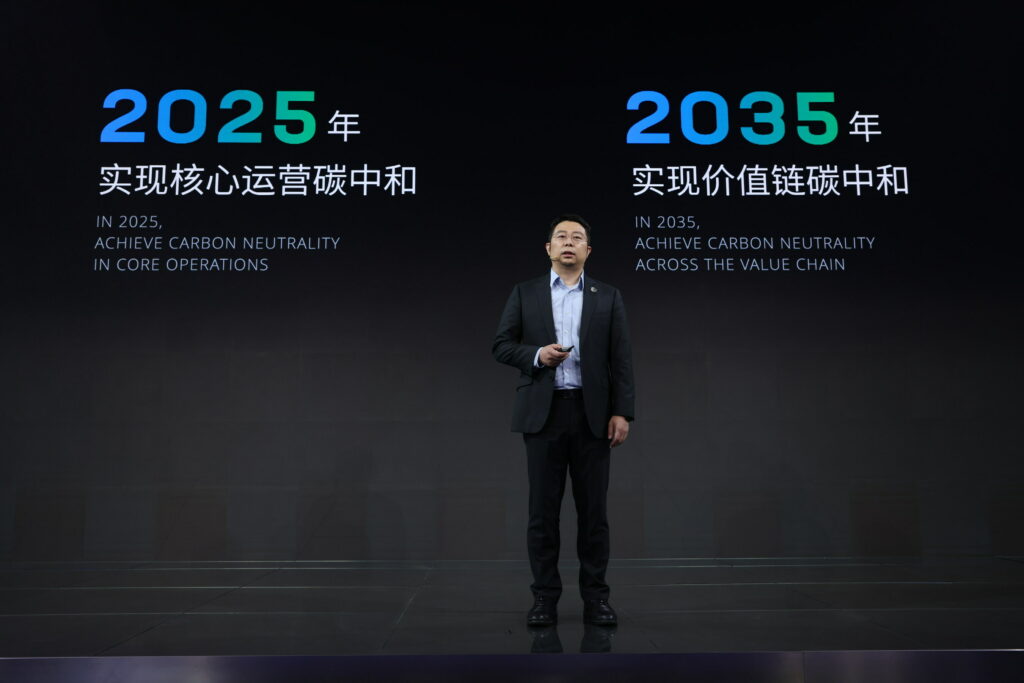Three US federal agencies signed an agreement this week that will see them working together on future hydropower development efforts.
The US Bureau of Reclamation, US Department of Energy's Water Power Technology Office and the US Army Corps of Engineers signed the Federal Hydropower generation memorandum of understanding at Hoover Dam on Monday, which was National Hydropower Day. The MOU provides for a collaborative working relationship that prioritizes similar goals and aligns ongoing and future renewable energy development efforts among the three agencies.
“Cooperation with our federal, industry partners and electricity customers ensures hydropower will continue to power American innovation and ingenuity, as it has throughout our nation’s history,” said Bureau of Reclamation Commissioner Brenda Burman. “Hydropower Day underscores our federal commitment to investing in hydropower, the backbone of our nation’s electrical grid.”
"Our collaboration with the Bureau of Reclamation and Army Corps of Engineers allows us to continue to leverage our resources so reliable and affordable hydropower will help meet the nation’s energy needs long into the future," added DOE’s Assistant Secretary for Energy Efficiency and Renewable Energy, Daniel R Simmons,. "As an energy resource that is both flexible and renewable, hydropower has an essential role to play in ensuring the grid continues to be reliable and resilient as it evolves."
“This agreement will allow the U.S. Army Corps of Engineers through its Civil Works mission to continue its partnership with federal and industry partners as we work together to enhance and manage our nation’s hydropower program,” commented Ryan A. Fisher, Principal Deputy Assistant Secretary of the Army (Civil Works).
The MOU and forthcoming action plan will detail overarching topics to increase sustainable hydropower generation and flexibility, while identifying a specific set of activities that the agencies will collectively undertake. These commitments were designed to represent continually evolving and improving approaches to hydropower operations, management and innovation that will reduce costs, increase flexibility and support additional clean, renewable power generation.
The MOU builds on a strong history of collaboration in federal hydropower. For example in January, the DOE and the Bureau of Reclamation jointly launched the Fish Protection Prize, a prize focused on developing more reliable and sustainable water structures while protecting fish from traveling into unknown, dangerous waters, diversions, and intakes. The prize finalists were announced in June 2020.
While at the event, Simmons also announced the upcoming Groundbreaking Hydro Prize, which will offer $300,000 in prizes to incentivize innovators to identify novel ways to develop foundations for new, low-head hydropower facilities. Groundbreaking Hydro seeks to identify concepts that will specifically address the key challenges in geotechnical foundations for hydropower, including site assessment, foundation design, and construction. The prize will open to competitors in the coming months, and is being administered by the National Renewable Energy Laboratory and supported by Oak Ridge National Laboratory.
 Reclamation Commissioner Brenda Burman, Assistant Secretary Office Energy and Efficiency and Renewable Energy Daniel Simmons and Principal Deputy Assistant Secretary for Civil Works Ryan Fisher with signed MOU.
Reclamation Commissioner Brenda Burman, Assistant Secretary Office Energy and Efficiency and Renewable Energy Daniel Simmons and Principal Deputy Assistant Secretary for Civil Works Ryan Fisher with signed MOU.







